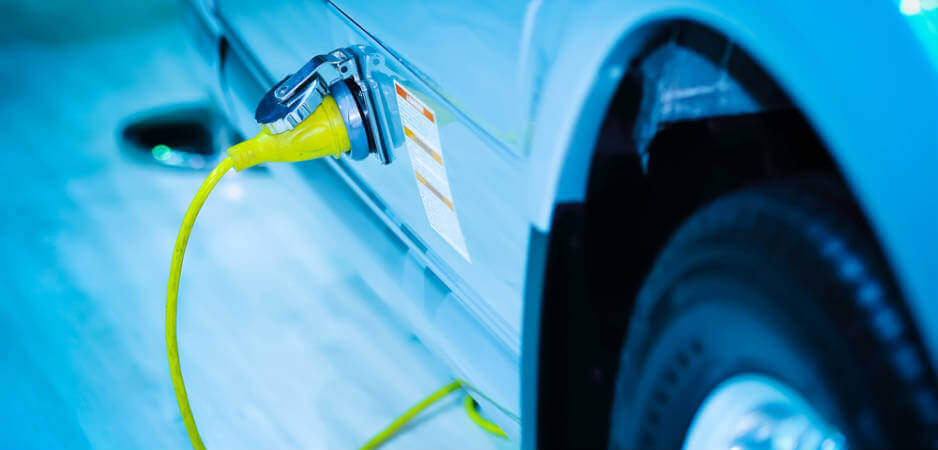California needs to set a date for barring the sale of gas and diesel vehicles.
California has been a global leader in renewable energy for two decades. In 2003, we mandated that 20% of our electricity would come from renewable energy by 2010. Critics scoffed, but we did that, and more. In 2011, California again passed legislation to raise the requirement to 33% by 2020. In 2015, we passed SB 350 raising the bar to 50% renewable energy by 2030. Each time we acted, critics said the goals were too ambitious and could not be met. Yet, each time, Californians met and exceeded them. California’s economy has not faltered; it has grown, and we are about to pass France to become the world’s 5th largest economy, with 40% fewer people. It’s time to think even more boldly.
Recently, Governor Jerry Brown has expressed interest in barring the sale of internal combustion vehicles, and last week Assemblymember Phil Ting (D-San Francisco) introduced legislation banning such vehicles by 2040. California would be the first US state to take such a step, but the world is moving quickly toward electric vehicles. India, France, Norway and the UK have all passed legislation prohibiting the sale of cars with internal combustion engines in the future. It is time for California to do the same.
Why move to all-electric vehicles? According to the American Lung Association, the six most polluted cities in the United States are in California: Fresno, Bakersfield, Visalia, Modesto, Los Angeles and San Jose. More than four in 10 Americans live in counties where the air is unhealthy to breathe due to ozone or particle pollution. A recent MIT study showed that air pollution causes 200,000 premature deaths a year in the United States, with a disproportionately high number of those in Southern California due to its legendary traffic.
Could California really go all electric? In short, yes. Today, every major car company in the world is making electric vehicles — and they are moving quickly. This year, both General Motors and Tesla began selling the first moderately priced, extended-range electric vehicles. Elon Musk expects that Tesla will ship over 500,000 electric vehicles over the next two years. Volkswagen, Nissan, BMW, Toyota, Ford, Daimler and Chinese automakers BYD and SAIC are also moving fast. As the home to 500,000 clean tech jobs and Tesla Motors, California is well-positioned to take the lead in speeding up the adoption of electric vehicles.
A ban on the sale of new internal combustion engines would be phased in over time, and internal combustion cars already on the road would not be banned. The cost of electric vehicles is coming down quickly and they will soon be cheaper than gas-powered cars. As production of electric vehicles is ramping up, the cost of lithium ion batteries is coming down. The cost of those batteries has dropped from $1,200 a kilowatt hour a decade ago to less than $200 today. Electric vehicles also cost roughly 75% less to operate and service than internal combustion vehicles. On top of all of this, the United States has now built out over 40,000 charging stations, making long trips convenient and more economical than ever.
Other countries have decided to get ahead of the curve. Norway has introduced a transportation plan with a target of selling only zero-emission passenger cars and vans by 2025. India has set an “aspirational target” of ending the sale of gas and diesel vehicles by 2026. The United Kingdom and France have both announced plans to ban the sales of gas and diesel vehicles by 2040.
Why aren’t these countries afraid that punitive laws like this will burden their citizens? While they understand there may be costs to the transition, policymakers around the world increasingly realize we are in the middle of a renewable energy revolution that is creating higher-paying jobs for the future.
California has led the clean technology revolution for decades. We have created new industries and hundreds of thousands of jobs in the process. Now that we are producing more clean energy than ever, and it is time to lead the way again. California needs to set a date for barring the sale of gas and diesel vehicles. If Norway, India, the UK and France can do this, so can we. California, what are we waiting for?
The views expressed in this article are the author’s own and do not necessarily reflect Fair Observer’s editorial policy.
Photo Credit: goldenjack / Shutterstock.com
Support Fair Observer
We rely on your support for our independence, diversity and quality.
For more than 10 years, Fair Observer has been free, fair and independent. No billionaire owns us, no advertisers control us. We are a reader-supported nonprofit. Unlike many other publications, we keep our content free for readers regardless of where they live or whether they can afford to pay. We have no paywalls and no ads.
In the post-truth era of fake news, echo chambers and filter bubbles, we publish a plurality of perspectives from around the world. Anyone can publish with us, but everyone goes through a rigorous editorial process. So, you get fact-checked, well-reasoned content instead of noise.
We publish 2,500+ voices from 90+ countries. We also conduct education and training programs
on subjects ranging from digital media and journalism to writing and critical thinking. This
doesn’t come cheap. Servers, editors, trainers and web developers cost
money.
Please consider supporting us on a regular basis as a recurring donor or a
sustaining member.
Will you support FO’s journalism?
We rely on your support for our independence, diversity and quality.







